One of them is currently in the midst of establishing herself as an entrepreneur by selling sheep's wool. The other is combining a part-time job with her work as a self-employed alternative medicine practitioner. Thanks to the SINNOVA Communication and Innovation Centre (also known as KIZ for short) in Offenbach, Germany, and the Social Business Women association, large numbers of women are now making their professional dreams a reality. KfW Stiftung is supporting the project, which is run by women, for women.
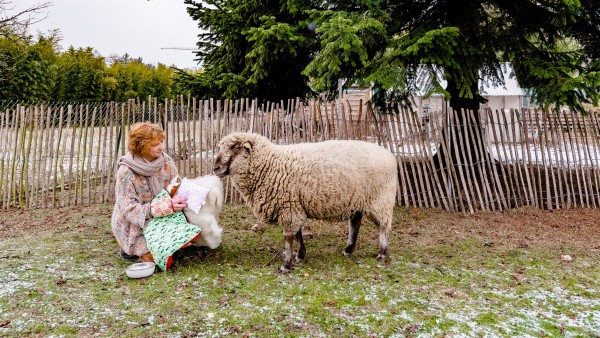
Sustainable wool
Working with local sheep's wool instead of relying on expensive imports: Sibylle Ruppersberg is eager to promote sustainability with her start-up Five Sheep.
A life without sheep has become pretty hard to imagine for Sibylle Ruppersberg. She speaks so lovingly about Macker, Rambo, Pauline, Alva, Greta, Rapunzel with the beautiful curls, or Lisa – who came as an emergency and ended up staying – that you would almost think she were referring to members of her own family. She wound up with sheep for the same reason other people wind up buying a lawnmower. Six years ago, the 53-year-old purchased a 6000 square metres plot with two buildings located within a conservation area between the towns of Sprendlingen and Buchschlag in the German state of Hessen. “How I am going to cope with all this grass?” she asked herself. Friends advised the animal lover that sheep would solve her problem. When she had them shorn for the first time, she washed the wool and ran it through her arthritis-plagued hands. It was like a bolt from the heavens: the wool was so soft and – above all – so beautifully warm. This warmth had an almost immediate soothing effect. “The wool's fibrous texture has a thermal effect, boosting circulation and heating us up from the inside out,” says Sibylle Ruppersberg enthusiastically about the healing effects of sheep's wool.
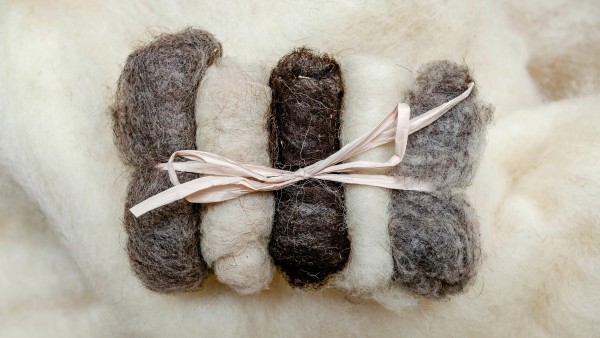
The soothing effect of heat
Sibylle Ruppersberg is convinced by the healing effects of sheep's wool. “Its fibrous texture has a thermal effect, boosting circulation and heating us up from the inside out,” as the 53-year-old entrepreneur explains enthusiastically.
However, she was outraged to discover that most sheep's wool produced in Germany is destroyed, while the wool needed for jumpers is imported at a high cost from Australia and then processed in China. Sustainable? Good for the environment? Absolutely not! She started sewing small heart-shaped cushions filled with washed, felted sheep's wool for her family, friends and acquaintances. Their reactions were similar to her own: “Lovely and warm! Do they come in a larger size?” Cats and dogs also loved the cushions and their natural warmth. This sparked an idea for a new business for Sibylle Ruppersberg, not least because her health issues meant that she was forced to give up her former career as a kindergarten teacher and director of a physics lab.
Before long, 80 tubs were set up in her garden, used to subject the lanolin-based wool to multiple washing processes in distilled water. A professional carder in central Hessen – one of the last of his kind – treats the raw wool to create five-centimetre-thick fleece. Sibylle Ruppersberg has since decided to christen her start-up Five Sheep.
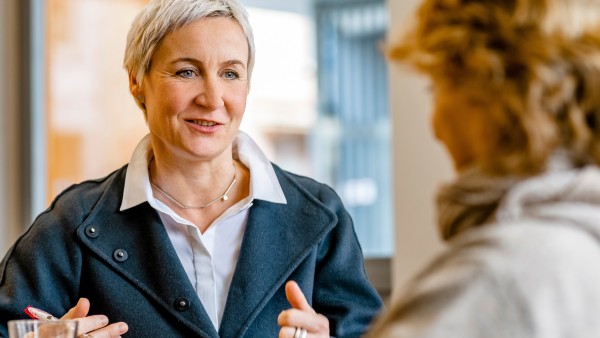
Women helping women
As the CEO of KIZ, Petra Bünz helps to prepare women for the professional world.
A recommendation from an acquaintance last year brought the entrepreneur to the business incubator in Offenbach and the ladies at KIZ. The staff at the communication and information centre have been providing people in the midst of a change in profession with advice, coaching and supervision for over 20 years. In 2014, CEO Petra Bünz and her team launched an additional cooperation with the group Social Business Women (SWB) from Königstein im Taunus with financial support from KfW Stiftung. At that point, Social Business Women was already active at several locations in the Rhein-Main area of Germany and in the city of Rostock. “As a charitable trust, we set ourselves the goal of solving societal problems with economic means. In its work with KIZ SINNOVA, Social Business Women addresses a much-neglected area: women returning to work. We are the perfect fit for an association like this, working together to make an important contribution to equal opportunities,” says Dr Martina Koechling, programme director at KfW Stiftung.
“We support women on the hunt for a new career path, regardless of whether they have taken a break from work due to children, divorce, illness or simply due to an urge to try something different,” adds Petra Bünz, head of KIZ. Each woman is provided with carefully tailored advice. The first session is free and then any further coaching appointments on topics such as accounting or setting up a website are based on a pay-what-you-can model. Inspired by Nobel Peace Prize laureate Mohammed Yunus from Bangladesh – the pioneer in microfinance loans – women can also apply for start-up and training loans.
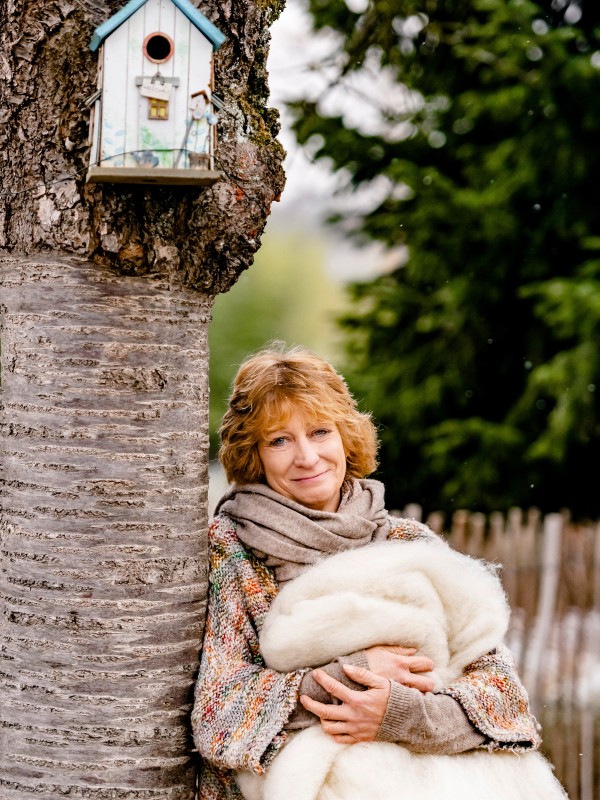
The courage to make a change
Sibylle Ruppersberg, the founder of Five Sheep, received plenty of encouragement from KIZ and Social Business Women.
“I couldn't sleep I was so excited,” says Five Sheep owner Sibylle Ruppersberg, describing the night before she presented her project to the jury at SBW, who is in charge of issuing these loans. Her presentation was a success; she received the funding and also plenty of encouraging remarks and a great deal of interest for her new business. “I was so surprised to see that they were taking me and my idea really seriously.” As Bünz explains, this is another big problem for women in business. Bünz and her team give women the courage to take the next step towards self-employment or a new career. “If women knew what they were capable of, then the world would be a different place,” she says with a smile. After all, she explains, most women don't think they have what it takes to do anything, despite having a wealth of experience. However, the entrepreneurs need to have a certain amount of tenacity and determination and – of course – a good business idea. “We don't like to give false hope to bad ideas. We help to build up their confidence but, at the end of the day, it's all up to the women themselves. However, they do always have our support.”
Since August 2014, a total of 1,100 women have attended an initial advice session with SBW's cooperation partner KIZ. As many as 80 per cent of them went on to receive further advice, while well over half of them have gone on to find a job or set up a business as a result of the support. Some of the women had been unemployed beforehand, others were suffering from stress and exhaustion, were on low salaries, were unhappy at work or had been victims of bullying. “All of the women we work with have suffered from some form of psychological strain or another,” explains Bünz.
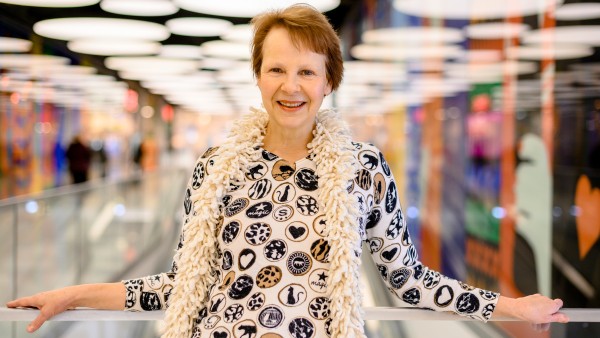
Networking with other women
“My experience with the KIZ has paved the way for improving my confidence,” explains Christiane Wenzel.
Christiane Wenzel spent 16 years working behind the Swiss Air desk at Frankfurt Airport. After her contract was terminated pending a change in working conditions, she spent three years at home with her two daughters. When her youngest daughter fell ill, they had a positive experience with homeopathy, which eventually inspired Christiane to train as a non-medical practitioner. She was 45 when she started the three-year training course, which she followed up with a further three years of classic homeopathy training. During this period, her marriage broke down, her husband moved out and her practice moved into her terraced house in Offenbach instead. Her daughters eventually left the nest, leaving her alone with two cats. “I'm more of an extrovert. It didn't take long before life in my end-of-terrace house with my patients was much too lonely for me,” she explains. An acquaintance from her choir told her about KIZ and its work. “I needed someone to give me support and strength.” She was on the lookout for a secondary source of income, a part-time job that would allow her to spend time with other people, while also leaving her enough time for her patients. After attending several advisory sessions, she is now working as a receptionist at a physiotherapy practice. She met her new boss rather informally at a birthday party. “It often works out that way,” says Diana Bär, an advisor on the team at KIZ. She goes on to explain that you simply have to put the fact that you're looking for a new job out there among your friends and family: “Network, network, network.”
Christiane Wenzel, who trained in the hotel trade, explains that her job on reception allows her to apply her experience from her previous profession. Between the hustle and bustle of her part-time job and her own patients' problems, she always makes sure that she takes a longer break at lunchtime. After previously suffering from stress and exhaustion, she is now much more careful when it comes to her own resources. Like most of the other women that attend advisory sessions, she also meets up for coffee and a chat as part of KIZ's “Success Team”, where the women discuss their next goals and stages of their careers. “My experience with the KIZ has paved the way for improving my confidence,” says Wenzel.
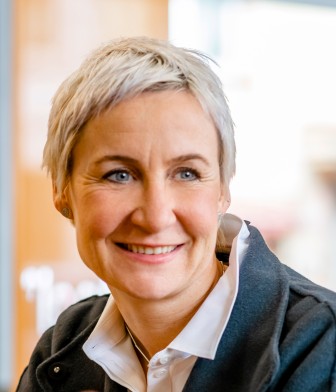
“If women knew what they were capable of, then the world would be a different place.”
Meanwhile, Sibylle Ruppersberg from Five Sheep now not only produces small cushions but also custom-made knee bandages with Velcro designed to help osteoarthritis, chest bandages and ankle supports, large and small bedspreads, and plenty more items, all filled with sheep's wool. And because her own stock no longer supply enough wool to cover her needs, she now buys wool from other local shepherds. At the moment, she still only sells her products online, from her own living room and in physiotherapy practices. Her work with physiotherapists has come about because bandages and supports made from lanolin-based wool are now classified and registered as class 1 medical products, as Sibylle Ruppersberg explains. Her next dream is to transform an old circus wagon into a business space on her own property.
Published on KfW Stories: Tuesday, 19 February 2019
The described project contributes to the following United Nationsʼ Sustainable Development Goals
Goal 5: Achieve gender equality and empower all women and girls
International studies and estimates show that women are still at a disadvantage nearly everywhere in the world and are robbed of their rights. The majority of poor people and the majority of all illiterate people are women. Each year, nearly 300,000 women die due to complications during pregnancy or birth, and 99 per cent of them are in developing countries. According to a study for the World Health Organization (WHO), over a third of all women in the world have been victims of physical or sexual violence.

All United Nations member states adopted the 2030 Agenda in 2015. At its heart is a list of 17 goals for sustainable development, known as the Sustainable Development Goals (SDGs). Our world should become a place where people are able to live in peace with each other in ways that are ecologically compatible, socially just, and economically effective.

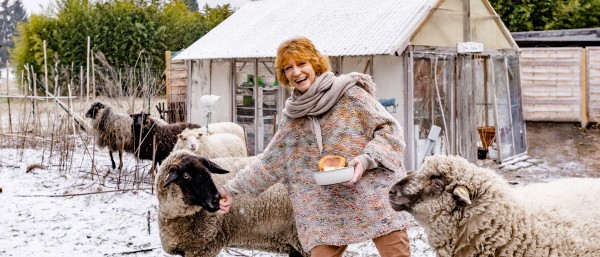
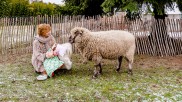
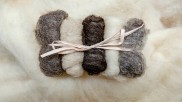
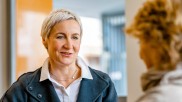
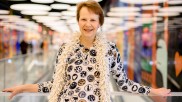
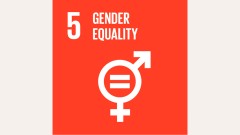

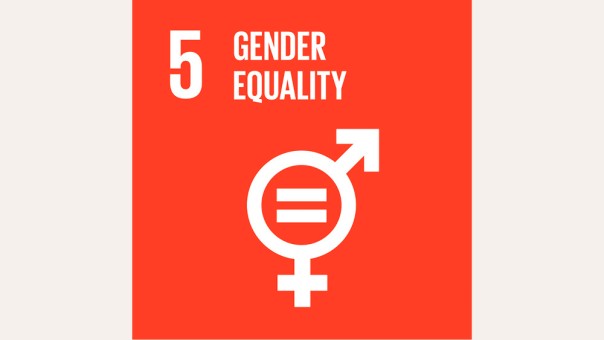

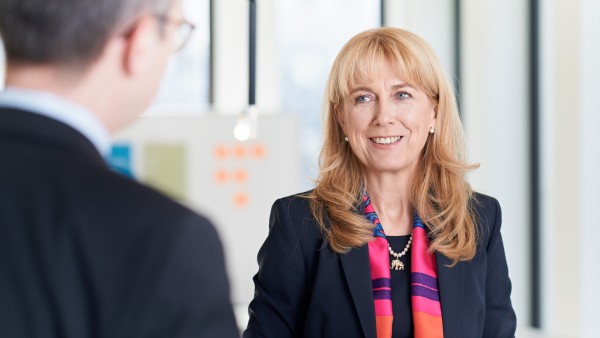
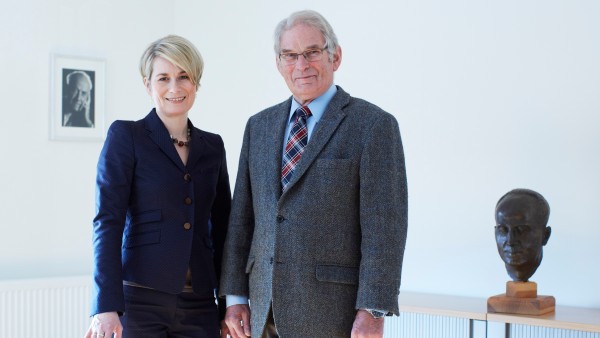
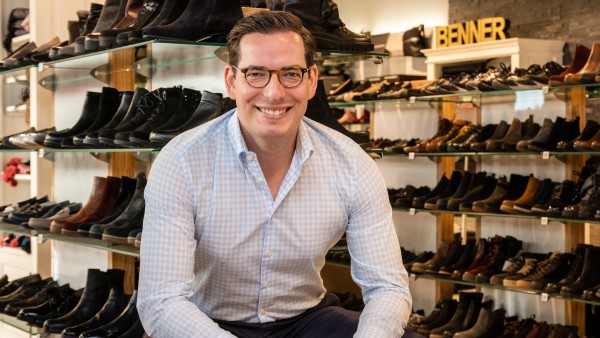
Data protection principles
If you click on one of the following icons, your data will be sent to the corresponding social network.
Privacy information